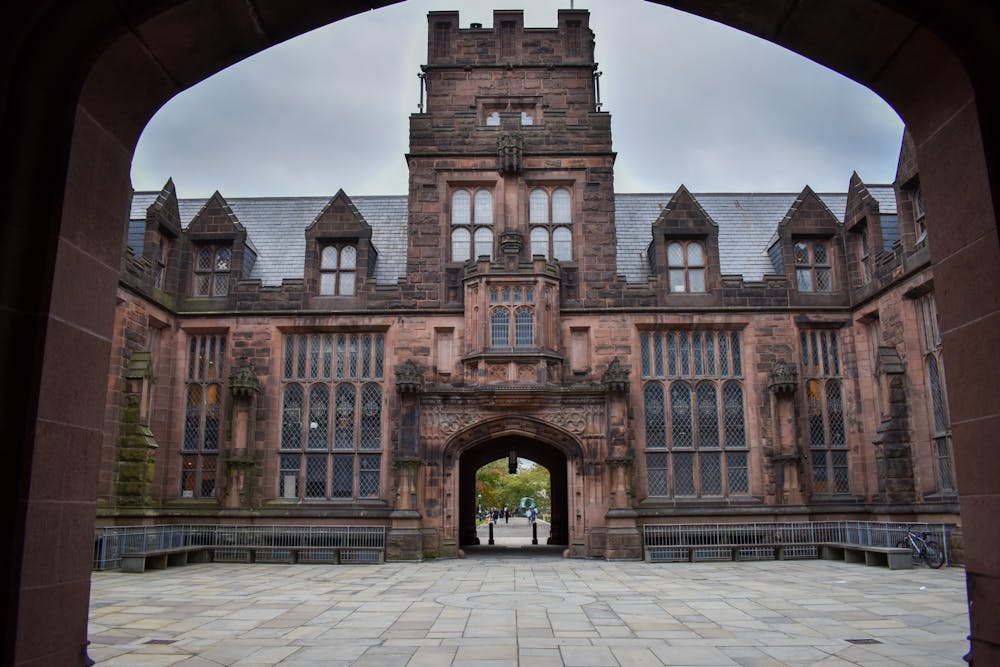A few days ago, I pulled up TigerHub, navigated to the major declaration page, and took a deep breath. My cursor hovered lovingly over “East Asian Studies” (EAS) for a few seconds; then, with a firm finality, I scrolled down and clicked on “School of Public and International Affairs” (SPIA). One last click, “submit form,” and the deed was done.
I would observe that my experience — considering EAS but ultimately declaring SPIA — is far more common than vice versa. In 2022, the Daily Princetonian published a piece analyzing the relative popularity of majors (then called concentrations) among the Class of 2024. SPIA was one of the most popular majors, with 134 declarations, whereas EAS was one of the smallest, at only seven. The same was true of the other regionally focused majors: only six students declared Near Eastern Studies (NES) and a mere three declared Slavic Languages and Literatures (SLA).
Looking at the Office of the Registrar’s University Enrollment Statistics, the same trends hold year after year — the area studies majors were all consistently in the bottom half. This is not inherently bad. Many area studies majors cite the small department size and attention from faculty as a pull factor to them; NES specifically highlights this appeal on their website.
That being said, area studies departments were originally founded out of a sense of urgency, with a specific purpose in mind and during a specific political context, and they are no less relevant today. Indeed, from the current state of American foreign policy, it’s clear that both the government and higher-educational institutions need more young policymakers with a background in area studies to better inform their political decisions. We can’t be a school that produces only policy generalists while sidelining policy specialists. Princeton should address this deficiency by encouraging more students to concentrate in or work towards certificates in area studies.
Princeton’s initial investment in area studies was largely driven by necessity. During the Cold War, the United States realized that it was woefully unequipped to deal with the rise of new challenges, especially the Soviet Union and its influence in various areas of the map. The Orientalist scholarly tradition that had dominated before no longer held up in the dynamic and rapidly decolonizing world. In response to a series of setbacks, especially the launch of the Soviet spacecraft “Sputnik” in 1957, the Eisenhower administration’s landmark 1958 National Defense Education Act (NDEA) used the nation’s financial resources to shift the center of gravity in higher education toward “area studies” that blend together the study of language, history, culture, economy, and politics through the lens of a particular region.
The University’s academic departments also followed this trend. The Department of Slavic Languages and Literatures was once so peripheral that it was categorized as a subsidiary of the French department, until it received a major boost in 1957 from the NDEA. Similarly, the Department of Oriental Languages and Literatures was founded in 1927 but did not welcome its first East Asia specialist until 1956, whereupon it continued to grow until it formally split into the Departments of NES and EAS in 1969. Those departments were eventually joined by the Program in Latin American Studies (LAS) in 1967, the Program in African Studies (AFS) in 1969, and the Program in South Asian Studies (SAS) in 2007, none of which are proper major-awarding departments, but are instead certificate programs.
After the end of the Cold War, however, the misconception arose that the need for regional specialists had also diminished. Funding was slashed for area studies departments, and the zeitgeist moved towards interregional themes of democratization and development. But all it takes is one look at the foreign policy mistakes of the last twenty years to recognize that there will always be a need for experts with a deep understanding of the local language, history, and culture. The expectation that American troops would be “greeted as liberators” during the 2003 invasion of Iraq, the incoherent Pivot to Asia strategy attempted by the Obama administration, and the Russian invasion of Ukraine in 2022 catching nearly everyone off guard all reflect the reality that our policymakers badly need more input from area studies specialists.
Despite its history of more reactionary investment, the University must now be proactive and lead the way in rebuilding area studies as a core discipline of social science. While it’s tempting to place the entirety of that burden on the administration, the best way to accomplish this would be for students and the University to meet halfway. On one hand, I urge my fellow students: sign up for more courses cross-listed with EAS, NES, LAS, AFS, and SAS! These are terrific classes, oftentimes criminally under-enrolled. You might just discover a passion that will lead you down the path to getting a minor in the department — or even a major.
Nevertheless, the University also needs to make major adjustments to support students with an interest in area studies. For instance, there needs to be a more consistent system for course cross-listing — there is no reason why “China’s Foreign Relations” does not count towards EAS nor why “Southeast Asia’s Global History” is counted towards EAS and NES but not towards SAS. More importantly, it’s way past time to make LAS, AFS, and SAS full departments that award majors, as has been argued before for AFS in the ‘Prince.’ Young, aspiring future policymakers with a passion for an area of the world should be encouraged to develop that passion to the fullest through coursework and a senior thesis, not forced to approach the issue obliquely through SPIA, History (HIS), or Economics (ECO).
If both the students and the University make a conscious effort to strengthen area studies as a discipline, a virtuous cycle ensues: student success will stimulate University funding that empowers even more student success. With our endowment, we should not need to wait for the next National Defense Education Act to be passed, nor for the next huge foreign policy blunder to be made. There is no better time than the present to make area studies cool again.
Vincent Jiang is a sophomore from Long Valley, N.J. concentrating in the School of Public and International Affairs. To deflect against accusations of hypocrisy, he promises that he is also working towards earning a certificate in East Asian Studies. He can be reached by email at vincentjiang@princeton.edu and on Twitter at @vincent_vjiang.









